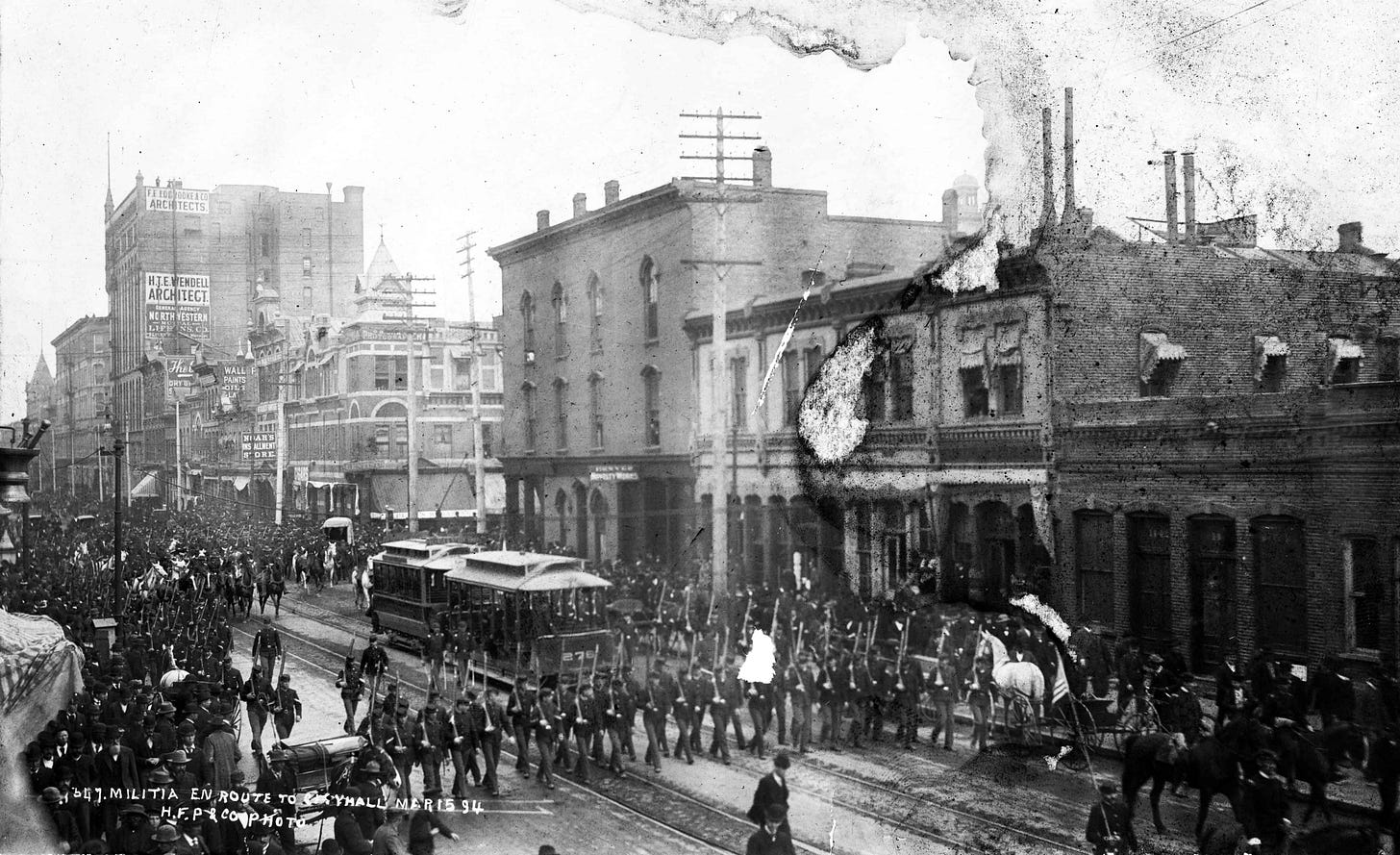The time Colorado's governor aimed cannons at Denver City Hall
On the Populists, Soapy Smith and the changing face of the con

“My gang, Bob! I’m going to be the government! I’m going to run things around here!”
Ron Hansen, The Assassination of Jesse James by the Coward Robert Ford (1983)
As a genre, the Western is hopelessly obsessed with the end of the historical era it mythologizes. It’s there in the earliest Wister and Remington stories, it’s there in the golden-age films that mourned the loss of the country’s frontier spirit, and it’s there in the darker, more honest meditations on what the Wild West really was. On some level, every American has wrestled with the question of when it was that the frontier finally closed, what it meant for a country so long defined by something to lose it, where all the cowboys had gone. For all this fixation, though, there’s little consensus on an actual endpoint. When, exactly, did the Old West die? Where do you draw the line? It is, of course, an impossible question to answer — inescapably reductive, deplorably anglocentric, of no practical value, ill-conceived from the start. Anyway, I think the Old West died on March 15, 1894.
It happened in Denver, sometime in the late afternoon…


